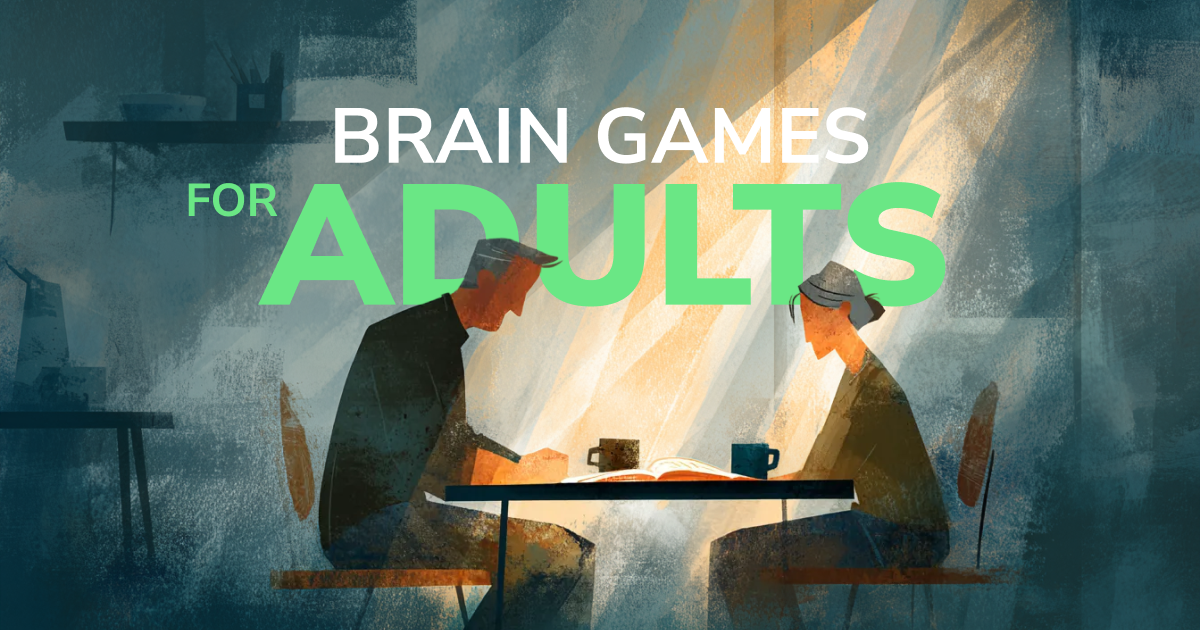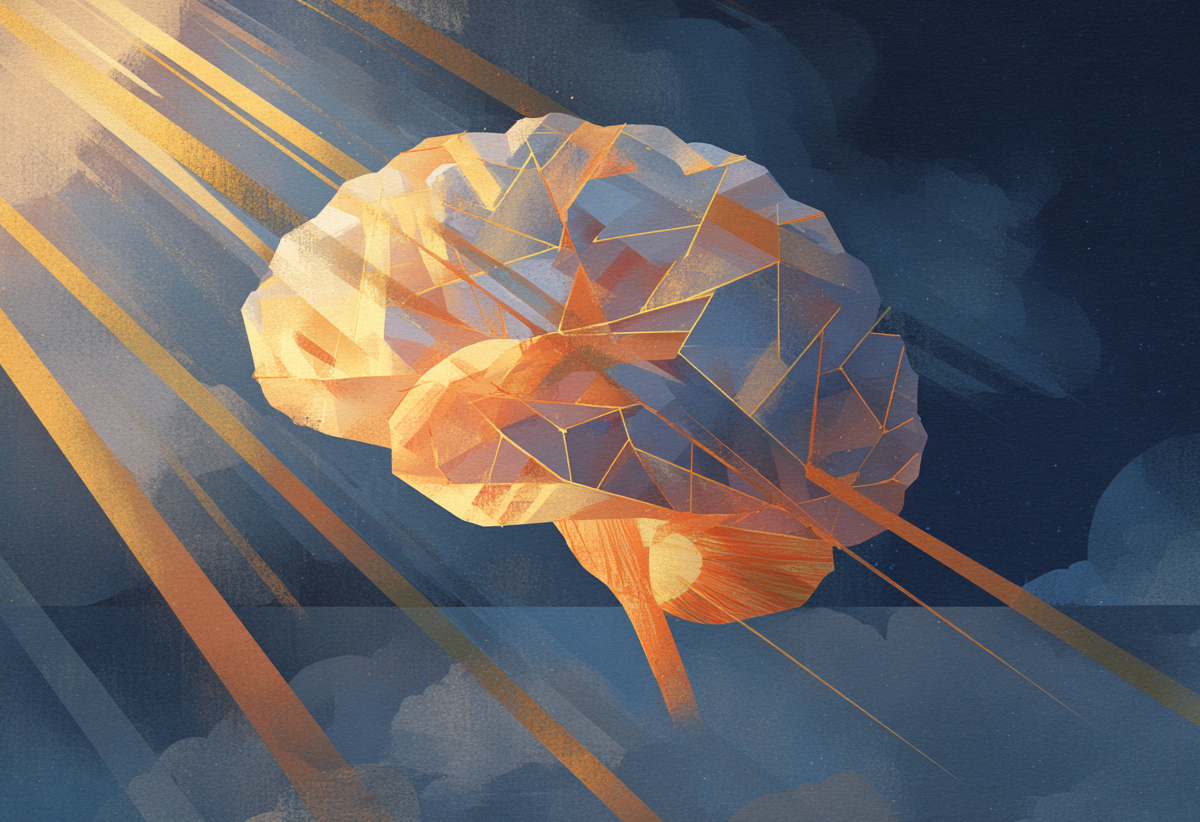Focus-Boosting Brain Games for Adults

Today, games aren't just entertainment—they're also another way to make learning and self-improvement more fun!
The mind, like the muscles within the body, need to be challenged and trained to perform better. This is especially important for adults, who need to be able to think fast when they perform their daily tasks. And while studying is the most effective method to learn, it's usually not the most interesting and fun way to do so.
Not anymore, though!
With the rise of cognitive training through gamified learning, many people have found a new way to keep their minds sharp and ready for the next challenge. And in this case, daily brain training games through puzzles and quick digital exercises like Mathler and Kakuro became the go-to edutainment for many modern adults.
What exactly are these puzzles and how do they help? And why Mathler and others in particular?
Read on and find out!
What are brain exercises/games for adults?

These are math puzzles or games that are designed particularly to appeal to young adult players and beyond, with the intention of helping the improvement of brain function and more, while being entertaining as well. Think of it as a fun physical exercise for your mind instead of your muscles.
They aren't labeled "for adults" because they're explicit or sensitive in nature, but rather, they're games that more mature audiences are known to enjoy more than their younger counterparts.
For example, kids and teens aged 8-16 prefer flashier, competitive games like Call of Duty, Fortnite, Valorant, etc. And AAA studios and companies know this. In that regard, adults favor slow-paced, non-competitive and mentally-challenging games that are more up the alley of indie game makers like Hey, Good Game.
Brain games are usually puzzles of varying kinds, but can also be in different forms as well. These games, when regularly played, enhance cognitive skills like reasoning, mental speed, memory, focus and more.
What counts as a brain game?
There are so many puzzles and games out there, so how would someone correctly identify one as a brain game? In our opinion, these are the criteria:
✅ Intentionally designed to engage the mind
✅ Mentally-challenging
✅ The cognitive-enhancing aspect is the core of the whole game
It's not a brain game if:
❌ Focuses more on split-second reflexes than strategizing or analysis
❌ The core gameplay is luck-based, like cards or dice
❌ Is only a secondary element to the core gameplay, like having a puzzle mini-game in a fast-paced shooter title
The science behind brain training games
Gamified learning isn't new. Even the first jigsaw puzzle was originally made to teach geography. But it's long been proven that learning paired with entertainment provides better information retention. It's nothing like when you're forced to memorize the table of elements for an upcoming chemistry quiz—you learn certain skills in games because you're genuinely interested and engaged while playing.
Brain games train the mind precisely because the game's core mechanics revolve around brain-training exercises, like arithmetic, logic, pattern recognition and more.
Mind games = ultimate brain power?
Before we get into the nitty-gritty of the science behind brain training, it's important to get this misunderstanding out of the way:
Playing brain games doesn't directly make you smarter.
What they do is enhance your brain's capability of learning.
So if you're trying to play brain games and expect to become the next Stephen Hawking or Albert Einstein after a few days, don't. These games are meant as a supplement for learning, not a substitute for academics and general wisdom.
How playing changes adult brain function
Constant play of puzzles and other mentally-stimulating games engages working memory, selective attention, pattern recognition and other cognitive functions. Whenever you play brain training activities, you engage the following parts of your head:
- The prefrontal cortex - involved in decision-making and problem-solving
- Parietal and premotor cortex - handles motor skills and hand-eye coordination
- Neural networks for attention, reward and working memory
Based on this study, these processes are supported by neuroplastic changes from repeated, goal‑centered practice, like when you keep on trying to solve Wordle® or sudoku every day. Puzzle solving also reduces cognitive load for familiar operations, improving processing speed and strategy selection over time, like when chess players learn how games are going to go the moment openings are made.
Regular, engaging practice also supports motivation and mood, where the feeling of success boosts confidence. That positive boost then helps consolidate learning and retain whatever was learned from each session.
More benefits of math puzzles →
Benefits of playing brain games regularly

You already know how playing puzzles and mental exercises works, now it's time to know what they provide:
Cognitive benefits
- Improved memory - Strengthens both short‑term recall (remembering numbers, words) and working memory (holding info while manipulating it).
- Sharper attention span - Trains focus and helps tune out white noise.
- Faster processing speed - Repeated problem‑solving makes your brain quicker at recognizing patterns and creating solutions.
- Enhanced problem‑solving skills - Logic puzzles force you to strategize, test what-ifs and adapt.
- Better reasoning ability - Boosts deductive and inductive reasoning through structured puzzle solving.
- Greater mental flexibility - Switching between puzzle types keeps you on your feet mentally.
- Stronger executive function - Planning, inhibition and decision‑making get a workout.
- Pattern recognition - Daily exposure to sequences and mental structures improves your ability to spot trends in varying scenarios.
Academic & skill benefits
- Math fluency - Arithmetic puzzles sharpen on-the-spot calculation speed and accuracy.
- Language skills - Word games expand vocabulary, spelling and verbal reasoning.
- Strategic thinking - Games with constraints teach efficiency.
- Critical thinking - Thinking of multiple possible solutions builds analytical skills.
- Learning transfer - Skills gained in puzzles can spill over into academic tasks like problem sets or essays.
Psychological & emotional benefits
- Stress relief - Engaging puzzles provide a calming, immersive way to release pent-up mental frustration.
- Boosted confidence - Solving tough challenges builds character and self-reliance, giving you that "I got this" attitude.
- Sense of achievement - Completing puzzles provides you with that quick dose of dopamine.
- Mood enhancement - Dopamine release from “Aha!” moments improves overall mood.
- Mindfulness practice - Puzzles demand present‑moment focus, reducing "drifting out" moments.
Long‑term brain health (especially for older adults!)
- Neuroplasticity support - Repeated challenge strengthens neural connections.
- Cognitive reserve building - Daily mental exercise helps delay age‑related neural decline.
- Reduced dementia risk - Studies suggest regular cognitive training correlates with a lower risk of cognitive impairment. Keep in mind, brain games are not a cure, but help prevent the onset.
- Healthy mental aging - Keeps the brain active, much like physical exercise keeps the body fit.
Lifestyle & practical benefits
- Productivity boost - Sharper focus spills into work and study tasks.
- Decision‑making speed - Faster cognitive processing helps in everyday choices.
- Better multitasking - Training working memory improves mental compartmentalization.
- Social connection - Multiplayer or shared puzzle play fosters bonding.
- Habit of discipline - Daily practice builds consistency and routine.
Best brain games for boosting brain health and performance
There are so many kinds of games that provide mental exercise out there, ranging from math and word games to memorization puzzles. In our opinion, here are the best ones for adults to try:
Disclaimer: These are what we think are the best, and other players can have a different opinion.
Math & logic games
- Mathler - Expression-based puzzle using logic and order of operations.
- Sumplete - A logic-grid game about sums and pattern deduction.
- Nerdle - Equation-centric game that uses a color-feedback system.
- Queens Ultimate - Colorful grid-based logic puzzle, popularized by LinkedIn*.
Pattern recognition games
- Sudoku - Classic 9x9 reasoning puzzle.
- Hitori - Eliminate duplicates while keeping the "flow" of the puzzle.
- Kakuro - Number crossword that follows addition and patterns.
Memory recall games
- Lumosity - Brain training game platform, has a dedicated section for memory games.
- Set - Matching game that requires heavy focus and memory.
Word & cross-domain games
- Crosswordle - Wordle meets crossword, has a color-feedback system.
- Squeezy - Letter-insertion puzzle where you try to make new words.
- Pair Down - Letter-elimination game focused on solving for hidden words.
FAQ
Are brain games actually proven to work?
Yes. Multiple studies show regular cognitive challenges maintain and improve brain health in short- and long-term observations/experiments.
How often should I play?
Depends on your schedule, but 10–20 minutes daily is optimal. We recommend distributing your playtime throughout the day.
What’s the best brain game for adults?
You can check the list above for more in-depth information, but we recommend Mathler for number sense, Crosswordle for letter skills and for a daily logic challenge: Queens Ultimate.
Is there a printed brain puzzle available?
Definitely! Mathler has a free e-book you can use even in classrooms.
Keep your brain healthy — play a brain game today!
We hope that we were able to explain what brain games are and why they're good for adults in particular. If you're looking for the right game to play, check out our brain teaser puzzles and daily games and subscribe to our newsletter for surprise recommendations!
More insightful game content
*Queens Ultimate is not affiliated with LinkedIn or its games.